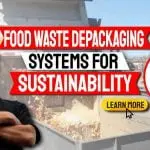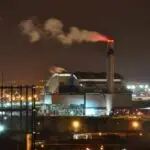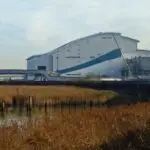Written by: Caron J Rose
Waste management services exist to assist certain companies with their problem of industrial waste. Some industries generate more waste than others and those that generate a lot in the course of their business usually find it more cost effective to have someone else deal with it on a contractual basis.
This topic covers a broad spectrum. It is a term often used to describe the management of domestic waste, usually collected, treated, processed, recycled, reused or disposed of by a department of the local authority.
As we produce more and more waste, partly as a result of more and more packaging being used for our everyday produce, our waste management services are becoming more sophisticated and better able to deal with the problem.
In industry there is a growing need for waste management services, some specialising in certain aspects of it and others attempting to be all things to all companies. Those who specialise in certain areas tend to deliver a better service as they can fine tune their expertise into a narrow and clearly defined area.
Industries such as the oil industry or chemical industry usually need waste management services who can respond to a given situation 24 hours a day and 365 days a year. Often their waste management needs involve coping with an unexpected emergency, an oil or dangerous chemical spill, for example.
Waste management services trained and expert in dealing with the treatment and disposal of hazardous waste is invaluable to these industries. They will most likely have licensed facilities for the treatment and transfer of contaminated waste and the personnel trained and experienced to carry out the operation.
The first line of defence against an emergency spill can be the use of skimming equipment to try and recover the spill. Booms and dispersants as well as absorbents and may also be used. Waste can be transferred from the site to a holding facility using appropriate waste transfer vehicles.
The industries that can suffer heavily by a serious waste problem rely heavily on the expertise and experience of professional waste management services. Their emergency response teams can contain, collect and treat hazardous waste in the fastest possible time, thereby rendering the situation as safe as possible as quickly as possible.
The Department for Environment, Food and Rural Affairs (DEFRA), the Environment Agency and the Health and Safety Executive all give useful guidance on the regulations governing the storage of hazardous waste in the UK. All service providers have to operate under these regulations and each one should be a registered waste carrier and usually also having a facility with an appropriate permit for accepting and treating hazardous waste, as well as its possible disposal.
Waste management services provide an invaluable backup service to a variety of industries that have come to depend on them for the necessary support and assistance they need when it comes to collecting, recovering, treating, recycling, reusing and disposing of waste. Waste has paradoxically become big business for the companies who have chosen to specialise in it.
Source: https://ezinearticles.com/?Waste-Management-Services—Treatment-and-Disposal&id=3043392
C. J. Rose writes on the subject of waste management treatment technologies and offshore environmental safety for Sureclean Limited Topics include HP & UHP water jetting, tank/vessel cleaning, vacuum transfer/pumping, industrial painting, asbestos management/removal, HVAC/duct management, NORM management.
Flare Stack Suppliers – Flares for Methane Emission Reduction
In this article, we provide a roundup of flare stack suppliers, the stacks they produce and developments in the flare stack market, with an emphasis on the landfill gas, and biogas flare stack market. These are mostly enclosed flares for methane emission reduction and use during Energy from Waste plant downtime. On This Page Flare […]
Food Waste Depackaging Systems for Sustainability and Microplastic Reduction
Food Waste Depackaging systems are increasingly being designed for sustainability and microplastic reduction which many would say is vital for the survival of our planet. Many people are interested in the rapidly growing anaerobic digestion sector, which uses mechanical equipment called depackagers or separators, to produce contaminant-free food waste slurries that may be piped into […]
Energy From Waste by Incineration: Why a Modern Incinerator is Not a Health Risk
Making Energy from Waste by incineration should not still be accused of being a significant threat to the health of nearby residents. We wish to explain why a modern incinerator is not a health risk. Concerns about pollution and particularly the discharge of trace amounts of dangerous substances into the area around an incinerator are […]
Recycling Facts: The BIG List!
Waste Incineration Plants (also known as WtE facilities) should not be installed as a replacement for material recycling. WtE is designed to complement recycling programs because not all waste is feasible to recycle. Incineration is an engineering process that uses thermal decomposition in a highly oxidative environment to decompose organic molecules into simple compounds, predominantly […]




